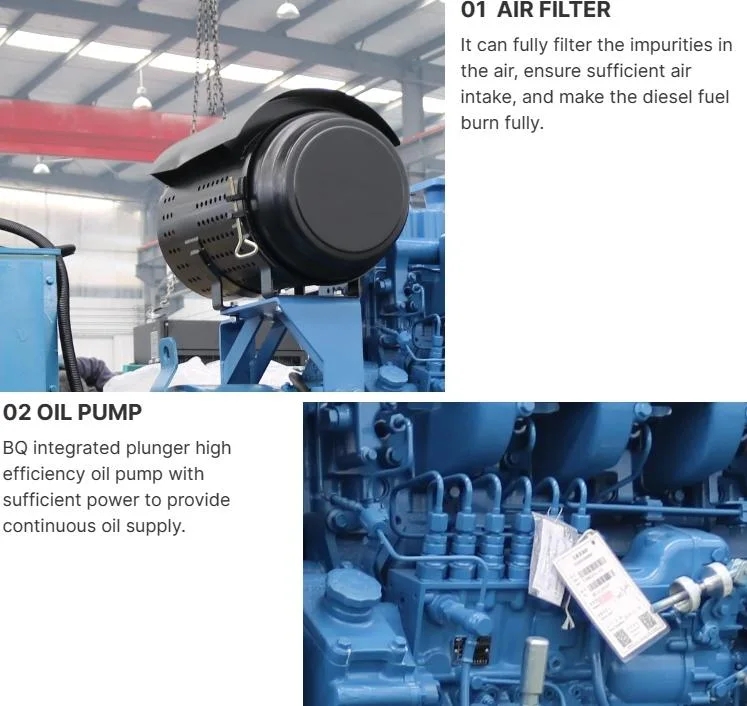Introduction
In today's modern world, access to reliable power sources is essential for various applications, from powering homes and businesses to operating critical infrastructure. However, in remote locations where traditional power grids are unavailable or unreliable, alternative power solutions are necessary. One such solution is the diesel generator, a versatile and dependable power source that can provide electricity in even the most isolated areas. This article will explore the use of diesel generators for remote control applications, discussing their benefits, operation, maintenance, and considerations for choosing the right generator for your needs.
Benefits of Diesel Generators for Remote Control
Diesel generators offer several key advantages that make them well-suited for remote control applications. Some of the main benefits include:

1. Reliability: Diesel generators are known for their robust and reliable performance, making them ideal for powering remote locations where access to electricity is limited. Their simple design and sturdy construction ensure that they can withstand harsh environmental conditions and operate consistently over long periods.
2. Fuel Efficiency: Diesel engines are more fuel-efficient compared to gasoline engines, providing higher power output per unit of fuel consumed. This fuel efficiency is crucial in remote locations where refueling may be challenging and costly.
3. Longevity: Diesel generators have a longer lifespan than other types of generators, making them a cost-effective investment for remote control applications. With proper maintenance, a diesel generator can last for decades, providing reliable power for years to come.
4. Power Output: Diesel generators are capable of producing high power output, making them suitable for a wide range of applications in remote locations, from powering small cabins and campsites to running telecommunications towers and construction sites.
5. Easy Maintenance: Diesel generators are relatively easy to maintain, requiring regular servicing and fueling to ensure optimal performance. With proper care, a diesel generator can continue to operate efficiently in remote locations with minimal downtime.
Operation of Diesel Generators for Remote Control
Operating a diesel generator for remote control applications requires careful planning and adherence to best practices to ensure safe and efficient operation. Here are some key considerations for operating a diesel generator in a remote location:
1. Fuel Supply: One of the most critical aspects of operating a diesel generator in a remote location is ensuring a reliable fuel supply. It is essential to have a sufficient quantity of diesel fuel on hand to power the generator for the desired duration, taking into account factors such as fuel consumption rate and potential delays in refueling.
2. Start-Up Procedure: Proper start-up procedures are essential to ensure the safe and efficient operation of a diesel generator. This includes checking fuel levels, oil levels, battery status, and other vital components before starting the generator.
3. Monitoring: Regular monitoring of the generator's performance is crucial to detect any issues early and prevent potential breakdowns. Monitoring parameters such as fuel consumption, oil pressure, temperature, and voltage can help identify potential problems and address them promptly.
4. Maintenance: Regular maintenance is key to ensuring the long-term reliability and efficiency of a diesel generator. This includes changing the oil and filters, inspecting fuel lines and connections, and testing the battery and electrical system.
5. Shutdown Procedure: Proper shutdown procedures are essential to protect the generator from damage and ensure its longevity. This includes allowing the generator to cool down before shutting it off and turning off all electrical loads before stopping the engine.
Considerations for Choosing a Diesel Generator for Remote Control
When selecting a diesel generator for remote control applications, several factors should be taken into account to ensure that the generator meets your specific needs and requirements. Some key considerations include:
1. Power Output: The power output of the generator should be sufficient to meet the electrical demands of the remote location. Consider the total power consumption of all connected devices and appliances to determine the appropriate generator size.
2. Fuel Efficiency: Choose a diesel generator that offers optimal fuel efficiency to minimize operating costs and reduce the frequency of refueling in remote locations.
3. Portability: If the generator needs to be transported to different locations, consider the portability and ease of mobility of the generator. Look for features such as wheels and handles for convenient transportation.
4. Noise Level: In remote locations where noise may be a concern, select a diesel generator with a low noise level to minimize disturbances to nearby residents or wildlife.
5. Durability: Choose a diesel generator with a sturdy construction and high-quality components to ensure long-term reliability and performance in remote environments.
Backup power solutions: Is a 400kW generator enough are a versatile and reliable power source for remote control applications, providing electricity in areas where traditional power grids are unavailable or unreliable. With their robust performance, fuel efficiency, and longevity, diesel generators are well-suited for powering remote locations such as construction sites, telecommunications towers, cabins, and campsites. By following best practices for operation, maintenance, and choosing the right generator for your needs, you can ensure safe and efficient power supply in even the most isolated areas. Consider the benefits and considerations outlined in this article when selecting a diesel generator for remote control applications to make an informed decision and enjoy reliable power wherever you go.
